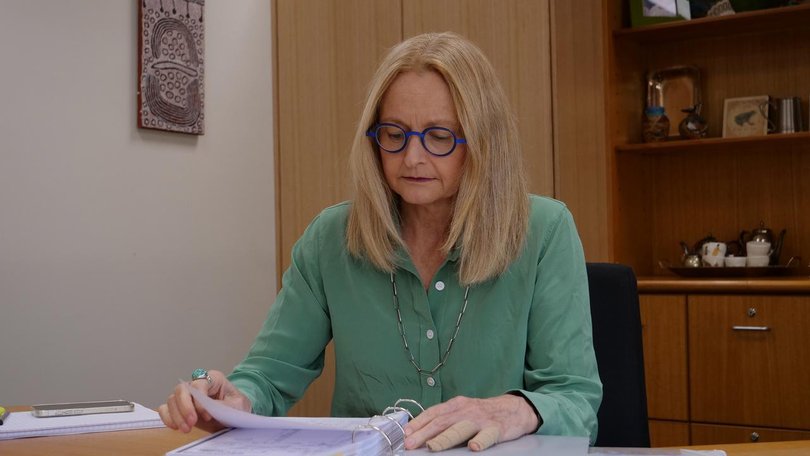Northern Territory response to domestic violence recommendations ‘underwhelming’, community service groups say
The Northern Territory’s response to coronial recommendations to combat domestic violence is ‘underwhelming’, community service groups say.

A territory government’s response to a coroner’s report on the deaths of four Aboriginal women fails to address “critical gaps” in combating domestic violence, a coalition of community services says.
Coroner Elisabeth Armitage investigated the violent deaths of Kumarn Rubuntja, Kumanjayi Haywood, Ngeygo Ragurrk and Miss Yunupingu.
They were among at least 83 Indigenous women killed by their partners in the Northern Territory since 2000.
Sign up to The Nightly's newsletters.
Get the first look at the digital newspaper, curated daily stories and breaking headlines delivered to your inbox.
By continuing you agree to our Terms and Privacy Policy.In November the coroner delivered 35 recommendations to address the Territory’s domestic violence crisis, saying they reflected initiatives the sector had called for.
But in delivering the NT government’s response to the report on Tuesday, Domestic Violence Prevention Minister Robyn Cahill said the recommendations were “uninspiring” and failed to hit the mark.
She accused the coroner of not being “brave enough” to make recommendations related to Aboriginal culture, noting findings in the report of cultural pressure used as a form of coercive control.
Calling out such behaviour could have paved the way “to empower communities to take a stand on this very sensitive and challenging issue,” the minister said.
She said the government was investing a record $36 million a year to tackle domestic, family and sexual violence (DFSV).
But a coalition of community services in the sector has in turn accused the government of failing to hit the mark in its response to the coroner’s recommendations.
The specialist services said critical gaps remained, with no Territory-wide workforce strategy, no long-term indexed funding, no coordinated sector plan across justice, housing, health and child protection and no resourcing for Aboriginal-led initiatives.
In a statement they said domestic, family and sexual violence was the NT’s biggest criminal issue but the government response was “underwhelming”.
“The vast majority of people incarcerated in the NT are there for DFSV-related offences, yet the services best placed to prevent this violence, community-based, specialist, trauma-informed programs, continue to be overlooked.”
One of three coronial recommendations rejected by the government was to establish a peak body, with the NT being the only Australian jurisdiction without one.
On the release of the coronial findings in November Family and Sexual Violence Commissioner Micaela Cronin said a peak body was “a powerfully important tool”.
“When a sector can come together and speak as one voice and can be engaged with it makes government’s job easier,” she said.
The services group said the government’s lack of genuine consultation with the sector was helping make the NT one of the most dangerous places in Australia to be a woman.
Cindy Torrens, CEO of the North Australian Aboriginal Family Legal Service, said real safety for Aboriginal families meant resourcing culturally strong, community-based legal and support services, not just responding after the harm is done.
Sally Sievers, CEO of the NT Council of Social Service, said without coordinated system reform, without a stable workforce, without sustained funding for the services already doing the work, more lives would be lost.
1800 RESPECT (1800 737 732)
Lifeline 13 11 14
Men’s Referral Service 1300 766 491
13YARN 13 92 76
